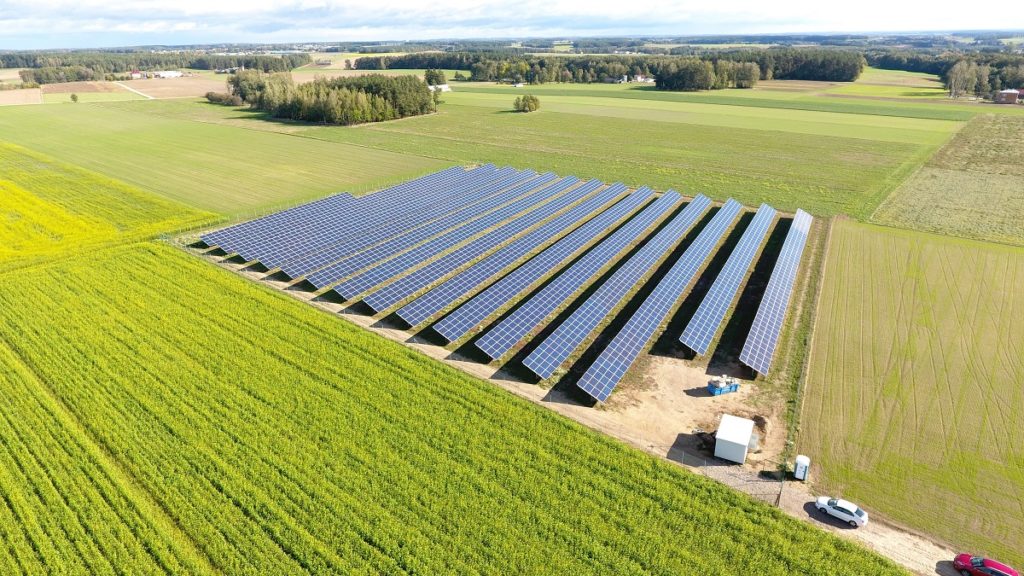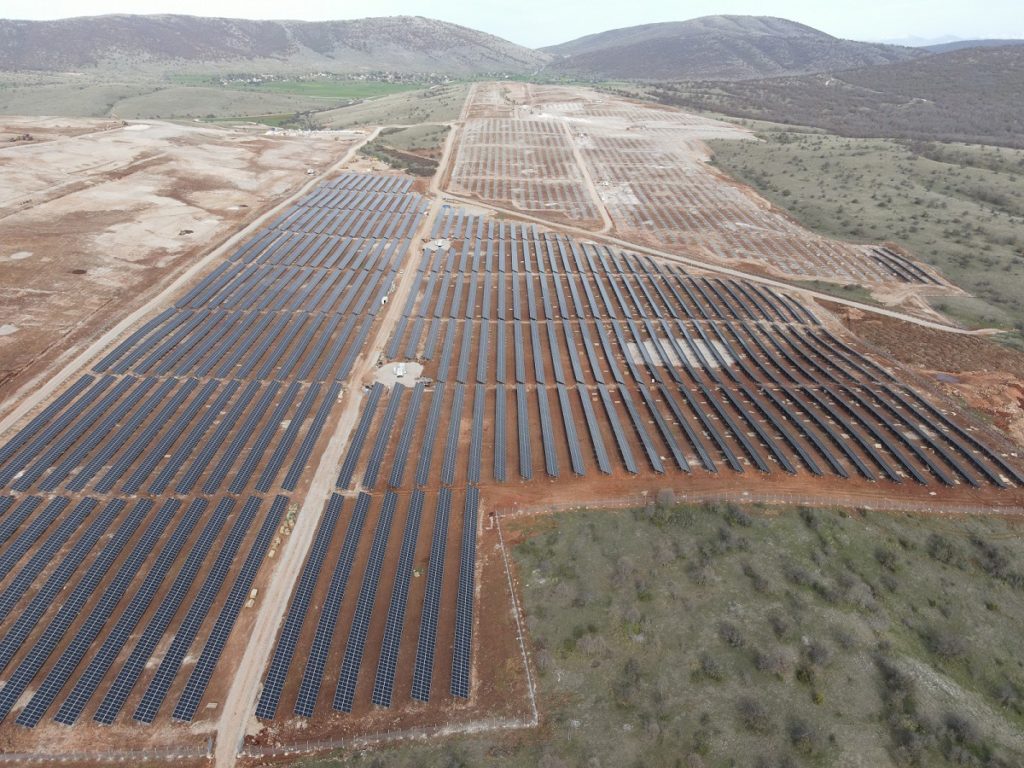
Not only will solar be the dominant source of new power generation in Europe by 2025, cementing its position as the third largest market for solar globally, but the continent has placed the asset class at the very heart of its COVID-19 recovery strategy. As part of a week-long special report on PV Tech Premium, Liam Stoker, Edith Hancock and Jules Scully explore the drivers for solar in Europe, the key markets and the challenges that remain. This installment of PV Tech’s European solar special uncovers the emerging markets of Europe’s PV sector, including Poland, Denmark and Greece.
Poland
Driven by successful renewables auctions and a generous net metering scheme for solar projects, Poland has firmly established itself as the market to watch for PV deployment, as the country weans itself off coal-generation and aims to obtain 23% of its energy from renewable sources by 2030.
Unlock unlimited access for 12 whole months of distinctive global analysis
Photovoltaics International is now included.
- Regular insight and analysis of the industry’s biggest developments
- In-depth interviews with the industry’s leading figures
- Unlimited digital access to the PV Tech Power journal catalogue
- Unlimited digital access to the Photovoltaics International journal catalogue
- Access to more than 1,000 technical papers
- Discounts on Solar Media’s portfolio of events, in-person and virtual
Following a 2020 that saw Poland more than double PV deployment year-on-year to 2.2GW, trade association SolarPower Europe labelled the market “Europe’s latest shooting star” and “the biggest surprise on the EU’s solar map”.
The country looks set to smash its target of installing 7.3GW of PV by 2030, and while it was the only EU member state not to commit to carbon neutrality by 2050 when the goal was set in 2019, steps have recently been taken to reduce the share of fossil fuels in power generation.
“I think the Polish government and Polish regulators, they definitely have an appetite for much more solar power,” says Przemek Pieta, CEO of R.Power, a Warsaw-based developer and EPC provider that aims to install approximately 200MW of solar in Poland per year as it picks up additional capacity in the country’s auctions.
An auction that took place in December for projects up to 1MW is expected to result in the deployment of 700MW of solar, with winning projects eligible for a 15-year guaranteed tariff, and another auction is set to go ahead this June that is projected to award 1GW for small-sized projects and 700MW – 800MW for large-scale plants.
Pieta says “there is a pretty stable outlook”, given that the government has announced more auctions for the next couple of years. He hopes the current size of the auctions will be maintained, not increased, in order to prioritise stability and prevent a boom-and-bust cycle of deployment.
Poland’s solar sector has also been boosted by a favourable self-consumption scheme for prosumers and a growing micro-installation segment of projects smaller than 50kW that consisted of around 350,000 systems at the end of 2020. As strong micro-installation deployment is expected to continue, there have been calls to update the country’s grid to prepare for the increase in the number of prosumers.
Grid issues have also affected utility-scale project developers that are experiencing longer delays securing a connection. Josef Kastner, CEO of European region at ReneSola Power, says the developer has seen grid connection delays reach as much as six months, leading to complications in terms of licencing schedules. “We hope that the utilities grid operator would increase their capability to connect all plants in some in some kind of reasonable timing,” he says.
But while some European markets’ solar sectors are held back by limited land availability, this is not an issue for Poland. Kastner makes a comparison between Poland and Germany, which are approximately the same size; while the former has a 2030 PV deployment target of 7.3GW, Germany’s is 98GW. “I guess there will be a lot of place in Poland to install solar, so we are very optimistic that this market keeps growing, and we will grow with the market,” he says.
Alongside deployment from auctions, where ReneSola has been active, securing 38MW of projects last December and dozens of small-scale solar plants in previous years, Kastner says he now expects “a lot more” solar parks to be backed by power purchase agreements (PPAs) in the country.
German developer BayWa r.e. earlier this year signed what it claimed was Poland’s first solar corporate PPA, with a 64.6MWp solar project set to provide power to a cement manufacturer under a ten-year deal. At the time, BayWa r.e. said the partnership “marks a new era of clean and sustainable corporate energy sourcing” and could serve as a blueprint for more PPAs in the country.
While the nascent PPA segment gains traction, there have been demands for changes in regulations to fully unleash the segment’s potential. Ewa Magiera, CEO of the Polish Photovoltaic Association, says it is necessary to alter Polish law so that electricity can be directly sold by renewables installations to end users. She adds that companies in Poland are looking to buy energy from renewables projects to guarantee a stable supply of electricity and to secure predictable energy costs.
With the PPA market on the rise and PV developers continuing to secure capacity through auctions, the growth of Poland’s solar sector could also serve to increase energy security in the country. According to Pieta of R.Power, as Poland’s service sector has grown in recent decades, changing electricity patterns means there is much more consumption during peak hours and during summer, with more people working in offices and higher demand for air conditioning creating a “huge imbalance” between demand and supply. He adds: “And obviously, solar is cheapest and the easiest way to fix it.”
Denmark
A successful move towards solar projects backed by power purchase agreements (PPAs) is significantly boosting the technology’s deployment in Denmark, which at the end of 2020 had 1.7GW of installed PV and has the potential to surpass 10GW by the end the decade if obstacles are removed.
This year is expected to see at least one renewables auction take place in the country, however a price cap is likely to put off solar bidders, according to Eric Anderson, CEO of Denmark-based developer European Energy. “I foresee that the interest in this auction will be low, maybe close to zero,” he says.
Instead, developers such as European Energy are focusing on subsidy-free projects and are now awaiting the outcome of a government decision on how it intends to fund much-needed grid upgrades, amid concerns that the renewables sector will be burdened with much of the cost. With a decision yet to be made, there has been a recent drop in solar project connections to the grid.
As electricity consumption in the country is expected to double in the next nine years, some solar companies acknowledge that they should take on some of the upgrade costs and are now pushing for clarification from authorities so completed solar projects can secure a connection.
“The main obstacle right now is the electricity grid,” says Peter Bjerregaard, director of regulatory affairs at Better Energy, an independent power producer that earlier this year signed a ten-year solar PPA with Centrica Energy Trading. Bjerregaard describes that deal as a “historic moment” for Denmark’s PV sector.
Greece
Grid issues are also plaguing Greece’s PV sector, which will be boosted by government plans to shut the country’s last coal plant in 2025, but needs to overcome problems surrounding licensing and land availability to fully unleash its potential.
With a successful auction scheme driving deployment, as much as 1GW of new installations are expected to be installed this year. However, with authorities overwhelmed by requests for grid connection terms, large-scale solar projects could be excluded from participating in future tenders due the bottleneck.

This is compounded by a growing objection to PV by local authorities and communities because of soaring applications for new plants, according to Takis Sarris, managing director of juwi Hellas, the Greek subsidiary of German EPC juwi. Local authorities “don’t give the permissions that are required” to further develop PV projects, he says.
Sarris adds that these objections are also making it difficult to obtain suitable land at a reasonable price for large-scale projects, with plots for installations in the 20-50MW range “very hard to find”.
Juwi Hellas is currently constructing Greece’s largest PV project in Western Macedonia, the country’s most coal-dependent region. Featuring bifacial modules, the 204MW Kozani plant is due for completion in early 2021 and is backed by a PPA with Hellenic Petroleum Group.
According to Stelios Psomas, a policy advisor at Greek PV association HELAPCO, “it is certain” that the country will reach its 2030 installed PV target of 7.7GW, which is expected to be raised in the coming years as a result of new EU emissions reduction goals.
Hungary
Hungary’s third renewables auction is set to take place this July, as the country looks to promote PV deployment to reach a target of 90% carbon-free electricity production by the end of the decade.
The tender will have maximum subsidised volume of 300GWh per year and be divided into two baskets for projects in the 300kW-1MW and 1-20MW ranges.
With the country’s previous auctions heavily oversubscribed, there were hopes among developers that more capacity would be made available. “What we see here is that this tender regime is not well balanced, the tender volume is very much limited,” says Josef Kastner, CEO of European region at ReneSola Power, a developer that entered the Hungarian market three years ago and now sees potential for its solar PPA market.
Additional demands from solar players in the country include an enhancement of cross-border trading and efforts to ease access to the grid, which, according to PV trade association MANAP, is currently “almost impossible”. It is hoped the grid access issue will be solved by a new regime on the connection process that expected to be revealed in the coming months.
Photon Energy, a Netherlands-based developer that last year commissioned 23 PV plants in Hungary with a total capacity of 23MWp, is also calling for government support for energy storage systems.
Zoltan Takacs, the company’s project development and acquisition manager in Hungary, warns that if rising land prices and the scarcity of grid capacities continue, the country’s 2030 goal of reaching 6.5GW of installed solar will be harder to achieve.







